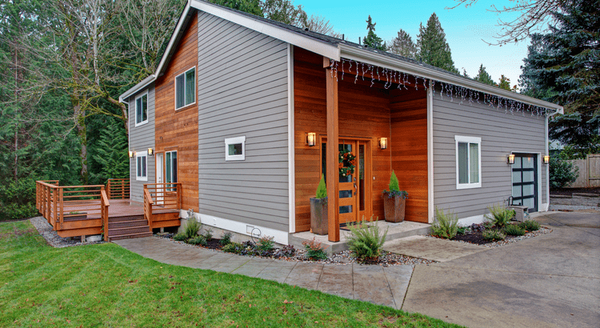

Are you curious about how to buy in the housing market now?
Navigating the real estate market can be daunting, especially with fluctuating prices and varying inventory levels. However, buying now rather than waiting might offer significant advantages. Here are five tips to understand why it benefits a buyer to act sooner rather than later. 1. **Interest Rates**: One of the most compelling reasons to buy now is the current state of interest rates which has changed the market pricing. What this can mean for you is utilizing a Buy Down interest rate method or using points to lower the interest rate. Let me share the locked interest rate offers that can be a WIN for you and especially if you are flexible on a few locations. 2. **Market Trends**: Keeping an eye on real estate news is crucial. Buying now locks in your price before potential increases plus advantages of concessions. 3. **New Construction Opportunities**: The availability of new construction homes can also influence your decision. Builders are offering various incentives to attract buyers, such as upgraded finishes or closing cost assistance. These perks may not be available if you decide to wait, as demand for new homes continues to rise. 4. **Tax Benefits**: Homeownership comes with tax advantages that renters miss out on, such as deductions for mortgage interest and property taxes. By purchasing a home now, you can start reaping these benefits sooner, potentially reducing your taxable income and increasing your savings. 5. **Equity Building**: The sooner you buy a home, the sooner you start building equity. Unlike renting, where monthly payments only benefit the landlord, owning a home means each payment contributes to your ownership stake in the property. This can be a significant financial asset over time. In conclusion, understanding these factors can help buyers make informed decisions about entering the housing market now rather than later. Staying informed through real estate news and considering new construction opportunities can provide additional incentives and benefits that make buying now a wise choice.
Read More

Why Pre-Approval Is Your Home buying Game Changer--First Step
Why Pre-Approval Is Your Homebuying Game Changer If you’re thinking about buying a home, pre-approval is a crucial part of the process you definitely don’t want to skip. So, before you start picturing yourself in your new living room or dining on your future all-season patio, be sure you’re working with a trusted lender to prioritize this essential step. Here’s why. While home price growth is moderating and mortgage rates have been coming down in recent weeks, affordability is still tight. At the same time, there’s a limited number of homes for sale right now, and that means ongoing competition among hopeful buyers. But, if you’re strategic, there are ways to navigate these waters – and pre-approval is the game changer. What Pre-Approval Does for You To understand why it’s such an important step, you need to know more about pre-approval. As part of the homebuying process, a lender looks at your finances to determine what they’re willing to loan you. From there, your lender will give you a pre-approval letter to help you understand how much money you can borrow. Freddie Mac explains it like this: “A pre-approval is an indication from your lender that they are willing to lend you a certain amount of money to buy your future home. . . . Keep in mind that the loan amount in the pre-approval letter is the lender’s maximum offer. Ultimately, you should only borrow an amount you are comfortable repaying.” Getting pre-approved starts to put you in the mindset of seeing the bigger financial picture, one step at a time. And the key is actually more than just getting a pre-approval letter from your lender. The combination of pre-approval and strategic budgeting is your golden ticket to understanding what you can actually afford. It saves you from painful heartaches down the road so you don’t fall in love with a house that might be out of reach. Pre-Approval Helps Show Sellers You’re a Serious Buyer But that's just the beginning. Let’s face it, there are more people looking to buy than there are homes available for sale, and that creates competition among homebuyers. That means you could see yourself in a multiple-offer scenario when you get ready to make your move. But getting pre-approved for a mortgage can help you stand out from other buyers. In today's fast-moving housing market, having that pre-approval in your back pocket can be your secret weapon. When sellers see you're pre-approved, it tells them you're a strategic and serious buyer. In a world of multiple offers, that's a big deal. As an article from the Wall Street Journal (WSJ) says: “If you plan to use a mortgage for your home purchase, preapproval should be among the first steps in your search process. Not only can getting preapproved help you zero in on the right price range, but it can give you a leg up on other buyers, too.” Pre-approval shows sellers you’re more than just a window shopper. You’re a buyer who’s already undergone a credit and financial check, making it more likely that the sale will move forward without unexpected delays or issues. Sellers love that because they see your offer as a reliable one. A win-win, right? Bottom Line So, before you start mentally arranging furniture in your dream home, work with a trusted lender to get your pre-approval set. It’ll save you time, stress, and a lot of headaches that could come up along the way without it. The reality is, the more prepared you are, the more likely you are to land the home you’re longing for.
Read More

Is Wall Street Buying Up All the Homes in America?
Is Wall Street Buying Up All the Homes in America? If you’re thinking about buying a home, you may find yourself interested in the latest real estate headlines so you can have a pulse on all of the things that could impact your decision. If that’s the case, you’ve probably heard mention of investors, and wondered how they’re impacting the housing market right now. That could leave you asking yourself questions like: How many homes do investors own? Are institutional investors, like large Wall Street Firms, really buying up so many homes that the average person can’t find one? To answer those questions, here’s the real story of what’s happening based on the data. Let’s start with establishing how many single-family homes (SFHs) there are and what portion of those are rentals owned by investors. According to SFR Investor, which studies the single-family rental market in the United States, there are eighty-two million single-family homes in this country. But how many of them are actually rentals? According to data shared in a recent post, sixty-eight million (82.93%) of those homes are owner-occupied – meaning the person who owns the home lives in it. If you subtract that sixty-eight million from the total number of single-family homes (82 million), that leaves just about fourteen million homes left that are single-family rentals (SFRs). Do institutional investors own all of those remaining fourteen million homes? Not even close. Let’s take it one step further. There are four categories of investors: The mom & pop investor who owns between 1-9 SFRs The regional investor who owns between 10-99 SFRs Smaller national investor who owns between 100-999 SFRs The institutional investor who owns over 1,000 SFRs These categories show that not all investors are large institutional investors. To help convey that even more clearly, here are the percentages of rental homes owned by each type of investor (see chart below): As you can see in the chart, despite what the news and social media would have you believe, the green shows the vast majority are not owned by large institutional investors. Instead, most are owned by small mom & pop investors, like your friends and neighbors. What’s actually happening is, that there are people out there, just like you, who believe in homeownership, and they view buying a home (or a second home) as an investment. Maybe they saw an opportunity to buy a second home over the last few years to use it as a rental and generate additional income. Or maybe they just decided to keep their first house rather than sell it when they moved up. So, don’t believe everything you read or hear about institutional investors. They aren’t buying up all the homes and making it impossible for the average person to buy. That’s just not what the numbers show. Institutional investors are actually the smallest piece of the pie chart. Bottom Line While it’s true that institutional investors are a player in the single-family rental marketplace, they’re not buying up all of the houses on the market. If you have other questions about things you’re hearing about the housing market, let’s connect so you have an expert to give you the context you need.
Read More

The Latest 2024 Housing Market Forecast Nationwide
The Latest 2024 Housing Market Forecast The new year is right around the corner, and you might be wondering if 2024 will be the right time to buy or sell a home. If you want to make the most informed decision possible, it’s important to know what the experts have to say about what's ahead for the housing market. Spoiler alert: the projections may be better than you think. Here’s why. Experts Forecast Ongoing Home Price Appreciation Take a look at the latest home price forecasts from Fannie Mae, the Mortgage Bankers Association (MBA), and the National Association of Realtors (NAR): As you can see in the orange bars on the left, on average, experts forecast prices will end this year up about 2.8% overall, and increase by another 1.5% by the end of 2024. That’s big news, considering so many people thought prices would crash this year. The truth is, prices didn’t come tumbling way down in 2023, and that’s because there just weren’t enough homes for sale compared to the number of people who wanted or needed to buy them, and that inventory crunch is still very real. This is the general rule of supply and demand, and it continues to put upward pressure on prices as we move into the new year. Looking forward, experts project home prices will continue to rise next year, but not quite as much as they did this year. Even though the expected rise in 2024 isn't as big as in 2023, it's important to understand home price appreciation is cumulative. In simpler terms, this means if the experts are right, according to the national average, after your home's value goes up by 2.8% this year, it should go up by another 1.5% next year. That ongoing price growth is a big part of why owning a home can be a smart decision in the long run. Projections Show Sales Should Increase Slightly Next Year While 2023 hasn’t seen a lot of home sales relative to more normal years in the housing market, experts are forecasting a bit more activity next year. Here’s what those same three organizations project for the rest of this year, and in 2024 (see graph below): While expectations are for just a slight uptick in total sales, improved activity next year is a good thing for the housing market, and for buyers and sellers like you. As people continue to move, that opens up options for hopeful buyers who are looking for a home. So, what do these forecasts show? The housing market is expected to be more active in 2024. That may be in part because there will always be people who need to move. People will get new jobs, have children, get married or divorced – these and other major life changes lead people to move regardless of housing market conditions. That will remain true next year, and for years to come. And if mortgage rates come down, we’ll see even more activity in the housing market. Bottom Line If you’re thinking about buying or selling, it’s important to know what the experts are forecasting for the future of the housing market. When you’re in the know about what’s ahead, you can make the most informed decision possible. Let's chat about the latest forecasts together, and craft a plan for your next move.
Read More
Categories
- All Blogs (108)
- Brohn Homes (1)
- Buy a Home (19)
- CMG Mortgage (8)
- Drees Homes (1)
- Economic Impact (9)
- Fairway Mortgage (8)
- Finding a rental home (1)
- Forebearance (3)
- Foreclosures (1)
- Home Buyer (33)
- Home Loan (15)
- Home Seller (21)
- Homes in Austin Texas (19)
- Homes in Georgetown (18)
- homes in Hutto tx (13)
- Homes in Round Rock (18)
- housing market 2023 (2)
- housing market 2024 (4)
- housing market predictions (4)
- How to sell my home (9)
- Luxury Rentals (4)
- Mortgage (13)
- MottoMortgageHometown (1)
- Moving to Austin (23)
- Presidential Election 2024 (1)
- Real Estate (40)
- Realtor (37)
- Renter tips (4)
- renters (8)
- Renting (11)
- Rocket Mortgage (6)
- Seller Tips (6)
- sellers (14)
- Should I sell my home (5)
- ThriveMortgage (1)
- VA Home Buyer (1)
- Why my home does not sell (3)
Recent Posts










